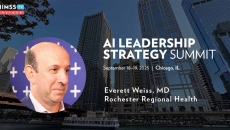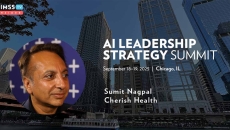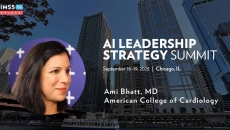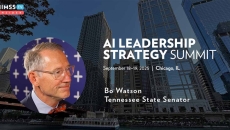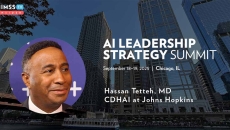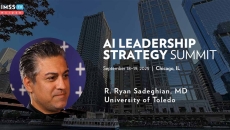clinical AI
Rochester Regional Health's Dr. Everett Weiss says it is essential that everyone in your organization understands "what is our why" for using the technology, how it is helping them work more efficiently and how it is good for patients.
By merging radar sensing with AI, Sumit Nagpal, Cherish Health founder and CEO, explains that the company's digital health tool enhances seniors' safety at home, measuring biometrics and contacting responders when necessary.
Karthik Raja, Ascension's chief analytics and AI officer, says that AI success demands dual goals: pursue inspiring moonshots, but start with "quick wins" that solve daily pain points and drive efficiencies.
AI can do more than analyze data, according to the American College of Cardiology's Dr. Ami Bhatt; it can act as an adjunct to human care, boosting safety, surfacing insights and giving patients more agency.
Rachini Moosavi, chief analytics officer at UNC Health, discusses moving beyond big genAI efforts to transforming smaller scale processes and workflows.
In this special hour-long episode, recorded in Chicago at the inaugural event, our hosts and guests offer a wide-ranging discussion about smart AI investments and strategic alignment. Produced in collaboration with the Straight Outta Health IT podcast.
AI systems demand massive energy infrastructure, and Tennessee State Sen. Bo Watson says his state has allocated $60 million to develop alternative energy sources to help meet AI's power needs.
Julie Frey, VP of product at Wolters Kluwer Health, discusses how the company's clinical decision support tool, which combines trusted evidence with generative AI, fits into clinical workflows and augments physicians' judgment.
Dr. Hassan Tetteh of the Johns Hopkins Center for Digital Health and AI says that agentic AI has the potential to surpass human intelligence and change the way we work, but can also enable personalized, more patient-driven healthcare.
According to Dr. R. Ryan Sadeghian, healthcare AI thrives best on small, steady successes in areas like ambient documentation where clinician trust and workflow fit matter more than having the latest model.
